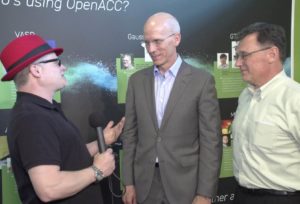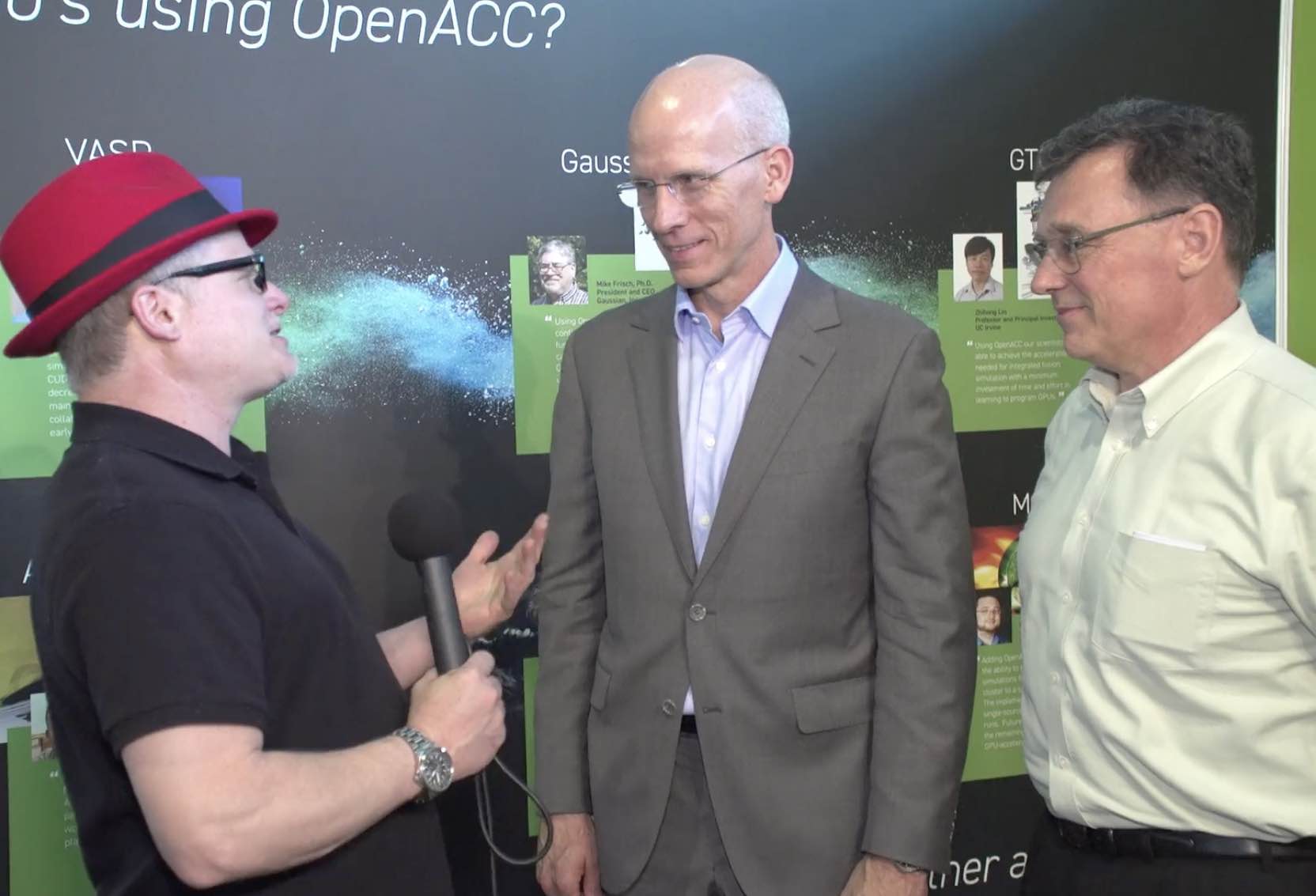 In this video, Jack Wells from the Oak Ridge Leadership Computing Facility and Duncan Poole from NVIDIA describe how OpenACC enabled them to port their codes to the new #1 Summit supercomputer.
In this video, Jack Wells from the Oak Ridge Leadership Computing Facility and Duncan Poole from NVIDIA describe how OpenACC enabled them to port their codes to the new #1 Summit supercomputer.
In preparation for next-generation supercomputer Summit, the Oak Ridge Leadership Computing Facility (OLCF) selected 13 partnership projects into its Center for Accelerated Application Readiness (CAAR) program. A collaborative effort of application development teams and staff from the OLCF Scientific Computing group, CAAR is focused on redesigning, porting, and optimizing application codes for Summit’s hybrid CPU–GPU architecture. Through CAAR, codes teams gain access to early software development systems, leadership computing resources, and technical support from the IBM/NVIDIA Center of Excellence at Oak Ridge National Laboratory. The program culminates with each team’s scientific grand-challenge demonstration on Summit.”
OpenACC is a user-driven directive-based performance-portable parallel programming model designed for scientists and engineers interested in porting their codes to a wide-variety of heterogeneous HPC hardware platforms and architectures with significantly less programming effort than required with a low-level model.
Jack Wells is the Director of Science for the Oak Ridge Leadership Computing Facility, a DOE Office of Science national user facility, and the Titan supercomputer, located at Oak Ridge National Laboratory. Wells is responsible for the scientific outcomes of the OLCF’s user programs. Wells has previously lead both ORNL’s Computational Materials Sciences group in the Computer Science and Mathematics Division and the Nanomaterials Theory Institute in the Center for Nanophase Materials Sciences. Prior to joining ORNL as a Wigner Fellow in 1997, Wells was a postdoctoral fellow within the Institute for Theoretical Atomic and Molecular Physics at the Harvard-Smithsonian Center for Astrophysics. Wells has a Ph.D. in physics from Vanderbilt University, and has authored or co-authored over 80 scientific papers and edited 1 book, spanning nanoscience, materials science and engineering, nuclear and atomic physics computational science, applied mathematics, and text-based data analytics.




